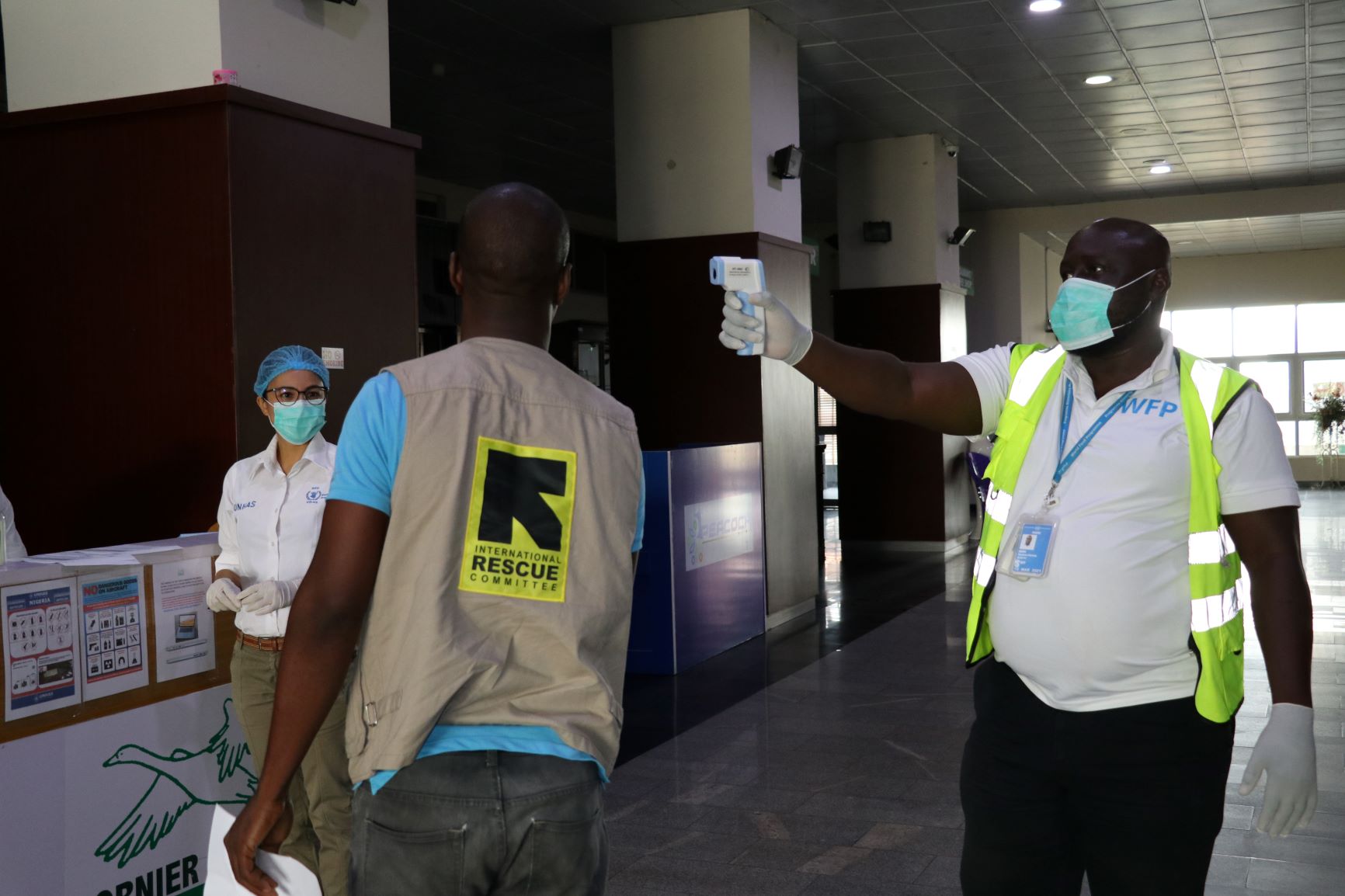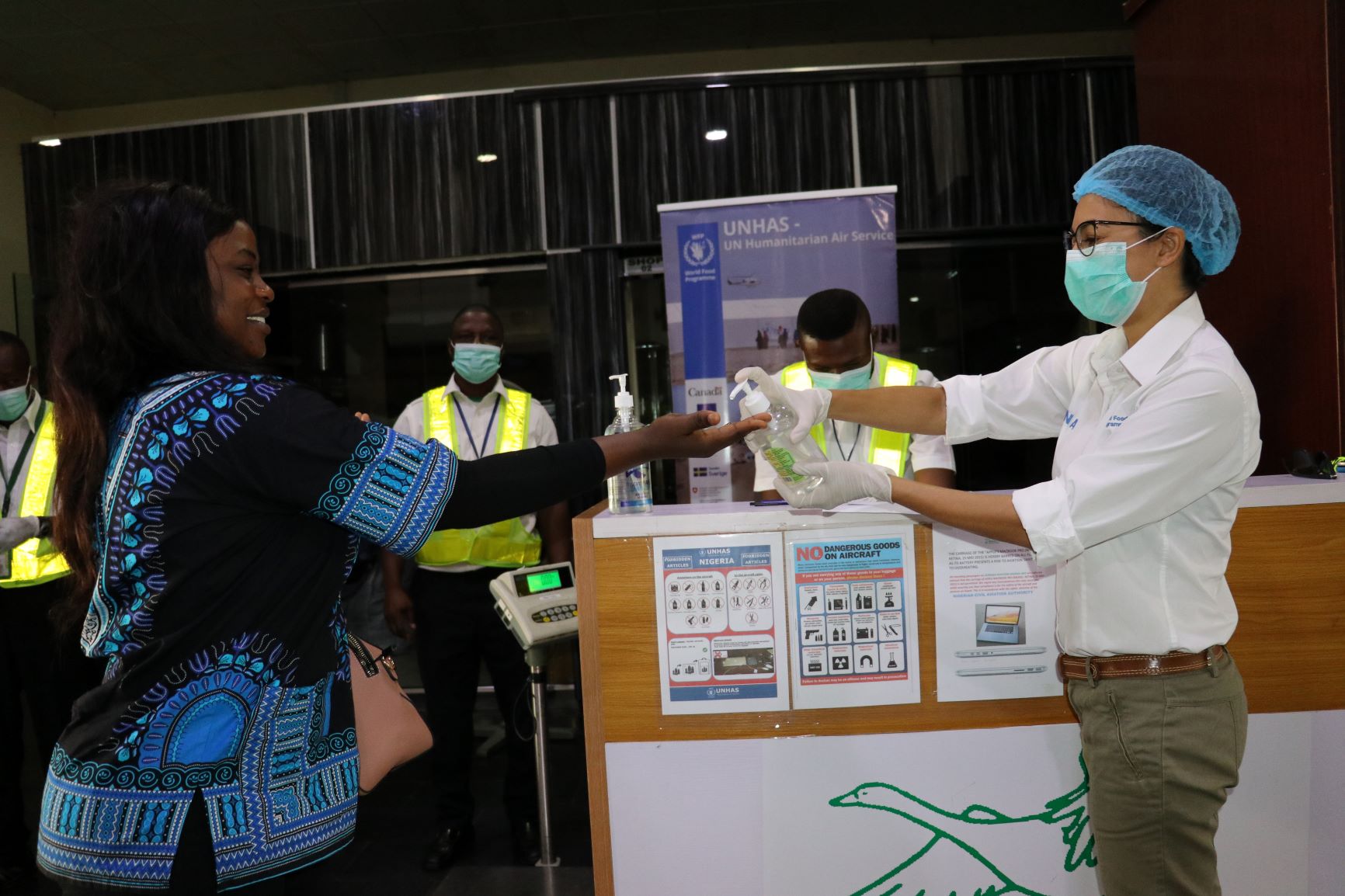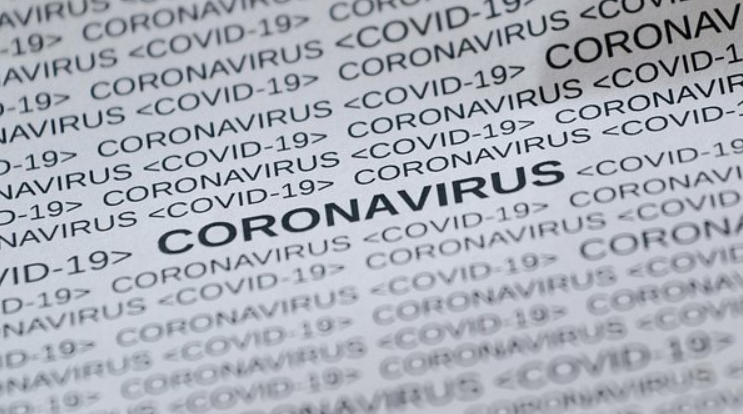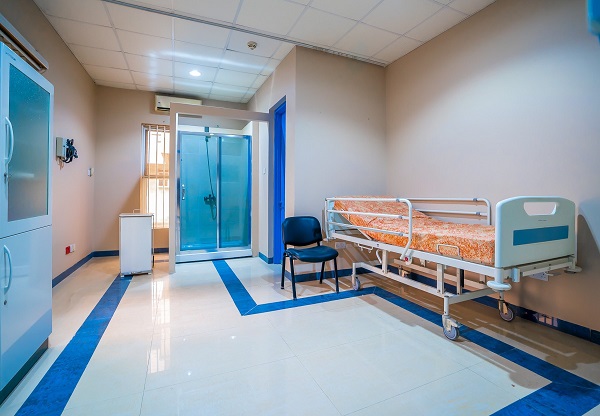BY KELECHI ONYEMAOBI AND ADEDEJI ADEMIGBUJI
As Nigeria grapples with the outbreak of COVID-19, the government has initiated measures including lockdowns and closure of borders to contain the spread of the virus. In the North East of the country, the main airport in Maiduguri, Borno State, is closed to all air traffic, except for military aircraft and flights operated by the United Nations Humanitarian Air Service (UNHAS).
The service, managed by the United Nations World Food Programme (WFP), received a special presidential clearance to continue its emergency operations.
“There simply wouldn’t be any response outside of Maiduguri without UNHAS,” says Bruce Walker, the Head of UNHAS in Nigeria.
UNHAS provides safe and regular air transport for aid workers to reach 14 remote locations and also moves supplies and equipment to serve hundreds of thousands of people affected by a decade-long insurgency that has rocked the North East of Nigeria.
Advertisement
But with COVID-19, it is not business as usual though. UNHAS has instituted strict measures for its crews and passengers. These include temperature checks for all persons boarding the flights.
“Those found to have high temperatures are not permitted to fly.” And there is a good reason for that. “This is most important for helicopter flights to the deep field to avoid spreading the virus into densely populated and hard to reach areas such as IDP camps,” Walker explains.

Advertisement
At a time of heightened concern that the outbreak of the COVID-19 pandemic in Nigeria could bring about extra demand for humanitarian and health workers to be deployed across the country — UNHAS, like other WFP-managed common services, is making contingency plans. But that would surely come at an extra cost.
“The funding situation is critical,” says Walker. “The air service remains the backbone of all humanitarian access, enabling UN agencies, non-governmental organizations, donors and members of the diplomatic community to reach affected populations safely and securely.”
For now, the focus is on serving the current needs. UNHAS hopes to continue effective and efficient services through its fleet of five fixed-wing aircraft and four helicopters in Nigeria, including a 30-seat jet linking Abuja, Nigeria’s capital city, to Maiduguri and Yola in the northeast. It is a relentless machine.
“We hardly take down-days, public holidays, etc. due to our emergency response capacity and maintenance schedules. There is no typical day as every planned mission is subject to change at a moment’s notice”.
Advertisement
Since it commenced operations in Nigeria in August 2015, UNHAS has successfully transported passengers and humanitarian cargo for 108 organizations. In 2019 alone, UNHAS carried out 30 life-saving medical evacuations from the conflict-affected communities, transported over 66,000 passengers, and more than 150 metric tons of cargo in 2019.
Canada, USAID, UKAID, Germany, the European Union (DG ECHO), Korea, Sweden, Switzerland, and UN CERF have contributed financially to sustain UNHAS operations in Nigeria.
Onyemaobi and Ademigbuji work in the Communications Team of the UN World Food Programme
Advertisement
Add a comment






